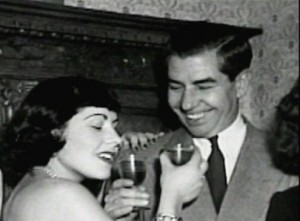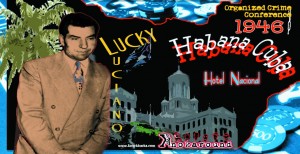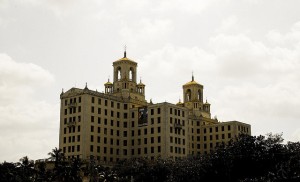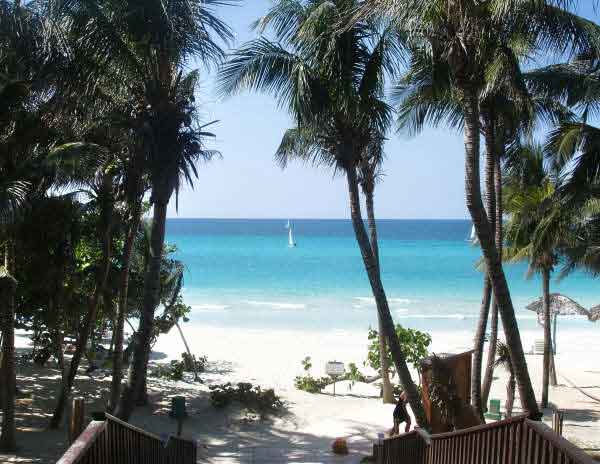The U.S. government pressured, but Cuban President Ramon Grau San Martin at that time would not budge. It was finally be done when Washington ordered the suspension of shipments of medical drugs to Cuba, thus depriving the island of important medicines. Then Charlie Lucky Luciano, the czar of the underworld, it was detained every consideration and courtesy by the Cuban secret police in a luxury restaurant in Havana, and was admitted to the Quarantine Station and interned in “Tiscornia” headquarter and expulsion proceedings started.
Thus ended the process initiated since U.S. authorities detected the presence of the boss of all bosses in Havana. Although it is unlikely that officials from the Narcotics Bureau of the Treasury Department United States had followed suit from Italy, Luciano in Havana oversights made inadmissible in a man of his position. Excited about a young American woman whom he met here by chance and that volatizaría then like smoke, it was shown to public places and was photographed. One morning at the output of a casino, a man cut him off. It was Harry Wallace, columnist Havana Post, which was published in English.
-I thought you were a famous person and not a mistake. He did it in Italy, his hometown, and what a surprise to find in one of the most famous of Havana, he said, not without assuring that it would be discreet.
-No. I’m not that person you are looking for Luciano replied curtly and went his way, but his fate was sealed.
FRIENDS AND ENEMIES
In fact, he felt safe in Cuba, where he had friends and had powerful people interested to remain in the country. Senator Paco Prio, brother of Prime Minister, was among his intimates, as were Paul Suarez Arostegui, husband of one of the nieces of the President, and Indalecio Pertierra, owner of the racetrack and the Montmartre cabaret, he sought out his bodyguards Cubans. Had made significant investments, mixing in Cuban politics and legislators, judges and police officers came to his parties and were congratulados with expensive gifts …
But Luciano was also very strong enemies. And the Cuban press suddenly seemed to discover who he was rich, kind and generous man who was presented as Salvatore Lucania, his real name, and who had entered Cuba with valid passport and a visa issued by the Cuban consulate in Rome. At that point the U.S. Bureau of Narcotics knew all I wanted to know about Luciano’s links on the island and the Grau recommended him to return to Italy.
Grau didn’t pay much attention to it. Responded to Washington, but gave the slip. He saw no reason to expel a man who had his papers in order and carrying, police said, a quiet life in Havana. Before leaving Italy, Luciano left there to enter a large narcotics organization in Cuba and move then to the United States, argued the U.S. government and Cuban Health Minister retorted that he doubted that Luciano was behind an alleged increase in traffic drugs. Grau appeared to clinch the matter by declaring: No legal argument that Mr. Lucania forced to leave the country if he continues to behave in a way so worthy.
THE EMBARGO
United States give up its efforts. The Narcotics Bureau required the collaboration of President Truman and the Departments of State and Treasury pressed together on Havana. If not expelled Charlie Lucky Luciano, Washington cut all legitimate shipment of narcotics and the island would be subject to seizure medications.
As the premier Carlos Prio maneuvered in secret for the government to stand out as best as possible to foreign interference, politicians of all parties and factions gathered in the house of Neno Pertierra, sought a graceful solution to the problem. From his golden exile in Daytona Beach, former President Batista let know what you think. Recommended that Luciano moved to Venezuela where his former assistant, Jaime Marine commander, was run by the most important hotel in Caracas, owned by Batista’s own Marine. There would be welcome. Thus, the General stated, it was flexible with the demands of Washington and Luciano maintained its goal of staying close to the United States. The other suggestion was bold Kuquine overseer, but totally absurd and unworkable. If the United States suspended the sale of medicines to Cuba, said Batista, Cuba suspended the sale of sugar to the U.S..
Through Meyer Lansky, his lieutenant, Luciano had relations with Batista since 1933, in exchange for a juicy slice, had authorized him to open and operate the National Hotel Casino and other casinos. He was a man with feet firmly settled in the land, but that idea seemed too pilgrim. I knew the Grau government would not buy a fight like that and it was pants. He then resigned him expelled from Cuba.
SEA AND PALM TREES
Luciano had come to the island six months earlier, in late September 1946. From Brazil, arrived at the airport in Camaguey, as usual in travel from South America. It was very brief stay in that city. He accepted the food offered Germain Alvarez Fuentes-the man of Ipecac-Cuban Minister of Agriculture and owner of the pharmacy street Avellaneda, linked, it is said, the drug business, and rested in the Grand Hotel, presumably Room 407, the famous Venetian quarter of the hotel facility.
Back in Havana, and stayed at the Hotel Nacional, was impressed with the landscape: the palm trees in Miami believe they did, while the blue sea reminded Naples. “But I was only 90 miles from the United States, and that meant I was back in America,” says Luciano in his memoirs.
Salvatore Lucania course had not come to Havana to admire the scenery, however spectacular it seems. He came to something more precise and urgent shore up his crumbling empire under the pressure of Vito Genovese, anxious to become the new head of the U.S. Mafia. Luciano out of jail, had been repatriated to Italy. Its remoteness allowed the breach to the whims of Genovese in New York and California, Buggy Siegel openly betrayed him. It imposed a call to order, and the heads of the leading families of the Mafia were to meet, called by Luciano, to discuss areas of influence, territorial problems, drug trafficking and the opening of the empire in Las Vegas. That was, says the writer Enrique Cirules, the agenda of the meeting of leaders which took place in Havana.
No city more appropriate for the conclave that, at that time in between heroin trafficking to the United States. Was convened at the National Hotel December 22, 1946 and lasted until the 26th. Attended most notorious leaders, while Al Capone, already very ill, sent his greetings and respects. The sessions were held in the room and nobody Taganana out of those could stay or use the services of the hotel facility in those days. The press did not publish a single line on the subject.
APPEARS Frank Sinatra
“If someone had asked, there was an apparent reason for such a meeting, says Luciano in his memoirs. Held to honor an Italian guy from New Jersey named Frank Sinatra who had flown to Havana to meet his friend Charlie Luciano, and during the week there would be a gala in his honor. ”
The meeting concluded. Participants left with the same secrecy with which they arrived, but Luciano remained in Havana. In his house at 30, in Miramar, he was untouchable, unaware of the surveillance staff of the Office of Narcotics kept on him. Also outside the bustle of his lieutenant, Meyer Lansky, the financial mafia engaged in secret out of Cuba.
He and the February 23, 1947. While having lunch, a Secret agent asked a favor to Luciano that accompanies it. The boss of all bosses did not lose his composure. Affectionately took leave of his Cuban bodyguards and walked to the car with official plate waiting for him. There was no case against him. Only this order to repatriate to Italy that Washington forced the government of Grau to run. In Tiscornia camp, where they were detained until their status is clarified foreigners arriving without the required documentation and those waiting to be removed from the country, told Lansky concern for his men who remained on the island but no one was bothered, it resumed the flow of drugs from the U.S., and drug trafficking, now controlled by Lansky, continued its unstoppable course.
He filed a writ of habeas corpus for Luciano, but was denied by the Minister of the Interior. Was present in court to pillory his accomplices Cubans. Senator Eduardo Chibas denounced by name the main partners of the Cuban mob boss, and the complaint led to a notorious incident in the Senate when, during the recess of a session, Paco Prio physically assaulted him while shouting, “This I Lucky Luciano sent. ” Aggression in another recess was countered Chibas and the preamble of a sword duel between the two parliaments.
On March 29, 1947 Charlie Lucky Luciano shipped to Italy, in a luxury cabin aboard the Turkish ship Bakir. Paco Prio not resist and went to the port to say goodbye to his friend.
Sources: CiroBianchiRoss/InternetPhotos/www.TheCubanHistory.com
When Lucky Luciano was in Havana
The Cuban History/ Arnoldo Varona, Editor
LUCKY LUCIANO EN LA HABANA
El gobierno norteamericano presionaba, pero el presidente Ramón Grau San Martín no cedía. Tendría al fin que hacerlo cuando Washington dispuso la suspensión de los embarques de drogas de uso medicinal hacia Cuba, con lo que se privaría a la Isla de importantes medicamentos. Entonces Charlie Lucky Luciano, el zar del hampa, detenido con toda consideración y cortesía por la Policía Secreta en un lujoso restaurante de La Habana, fue internado en la Estación Cuarentenaria de Tiscornia y se le formó expediente de expulsión.
Culminaba así el proceso iniciado desde que autoridades estadounidenses detectaron la presencia del capo de todos los capos en la capital cubana. Aunque no es improbable que funcionarios de la Oficina de Narcóticos del Departamento del Tesoro de Estados Unidos hubiesen seguido sus pasos desde Italia, Luciano cometió en La Habana descuidos inadmisibles en un hombre de su posición. Entusiasmado con una joven norteamericana a la que conoció aquí de manera casual y que se volatizaría luego como el humo, se exhibió con ella lugares públicos y fue fotografiado. Una madrugada, a la salida de un casino de juego, un hombre le cortó el paso. Era Harry Wallace, columnista del periódico Havana Post, que se editaba en inglés.
-Me pareció que era usted una persona conocida y no me he equivocado. Lo hacía en Italia, en su pueblo natal, y vaya sorpresa de encontrarlo en uno de los sitios más afamados de La Habana –le dijo, no sin asegurarle que sería discreto.
-No. Yo no soy esa persona que usted busca –respondió Luciano secamente y siguió su camino, pero su suerte estaba sellada.
AMIGOS Y ENEMIGOS
En realidad, se sentía seguro en Cuba, donde contaba con amigos y había gente muy poderosa interesada en que permaneciera en el país. El senador Paco Prío, hermano del Primer Ministro, estaba entre sus íntimos, como también lo estaban Pablo Suárez Aróstegui, esposo de una de las sobrinas del Presidente, e Indalecio Pertierra, dueño del hipódromo y del cabaret Montmartre, que le buscó a sus guardaespaldas cubanos. Había hecho significativas inversiones, se mezclaba en la política cubana y legisladores, jueces y oficiales de Policía acudían a sus fiestas y eran congratulados con regalos costosos…
Pero Luciano tenía también enemigos muy fuertes. Y la prensa cubana pareció descubrir de golpe quién era aquel rico, amable y generoso señor que se presentaba como Salvatore Lucania, su nombre verdadero, y que había entrado en Cuba con pasaporte legal y con una visa expedida por el consulado cubano en Roma. A esa altura la Oficina de Narcóticos norteamericana sabía todo lo que deseaba saber sobre los vínculos de Luciano en la Isla y recomendó al gobierno de Grau que lo devolviese a Italia.
Grau se hizo el sueco. Respondió a Washington, pero le dio el esquinazo. No veía razones para expulsar a un hombre que tenía sus papeles en regla y llevaba, decía la Policía, una vida apacible en La Habana. Antes de salir de Italia, Luciano dejó allí una extensa organización para introducir narcóticos en Cuba y trasladarlos luego a Estados Unidos, adujo el gobierno norteamericano y el ministro cubano de Salud ripostó que dudaba de que Luciano estuviese detrás de un supuesto aumento en el tráfico de drogas. Grau pareció rematar el asunto al declarar: No hay argumento legal que obligue al señor Lucania a salir del país si sigue comportándose de una manera tan digna.
EL EMBARGO
Estados Unidos no cejaba en su empeño. La Oficina de Narcóticos requirió la colaboración del presidente Truman y los departamentos de Estado y del Tesoro presionaron en conjunto sobre La Habana. Si no expulsaba a Charlie Lucky Luciano, Washington cortaría todo embarque legítimo de narcóticos y la Isla quedaría sometida a un embargo de medicamentos.
Mientras el premier Carlos Prío maniobraba en secreto para que el gobierno saliera lo mejor parado posible ante la injerencia extraña, políticos de todos los partidos y tendencias, reunidos en la casa de Neno Pertierra, buscaban una solución airosa al problema. Desde su exilio dorado de Daytona Beach, el ex presidente Batista dejaba saber su opinión. Recomendaba que Luciano se trasladara a Venezuela donde su antiguo ayudante, el comandante Jaime Mariné, regenteaba el hotel más importante de Caracas, propiedad de Batista y del propio Mariné. Allí sería bien acogido. De esa manera, precisaba el General, se era flexible con la exigencia de Washington y Luciano mantenía su objetivo de permanecer cerca de Estados Unidos. La otra sugerencia del mayoral de Kuquine era audaz, pero totalmente absurda e irrealizable. Si Estados Unidos suspende la venta de medicamentos a Cuba, decía Batista, Cuba suspende la venta de azúcar a Estados Unidos.
A través de Meyer Lansky, su lugarteniente, Luciano mantenía relaciones con Batista desde que en 1933, a cambio de una jugosa tajada, lo había autorizado a abrir y operar el casino del Hotel Nacional y otras salas de juego. Lo tenía por un hombre con los pies bien afincados en la tierra, pero aquella idea le pareció demasiado peregrina. Sabía que el gobierno de Grau no se compraría una bronca como esa ni tenía pantalones para ello. Se resignó entonces a que lo expulsaran de Cuba.
EL MAR Y LAS PALMERAS
Luciano había llegado a la Isla seis meses antes, a fines de septiembre de 1946. Procedente de Brasil, arribó por el aeropuerto de Camagüey, como era habitual en los viajes procedentes de Sudamérica. Fue muy breve su estancia en esa ciudad. Aceptó la comida que le ofreció Germán Álvarez Fuentes –el hombre de la Ipecacuana- ministro cubano de Agricultura y propietario de la farmacia de la calle Avellaneda, vinculado, se dice, al negocio de la droga, y descansó en el Gran Hotel, presumiblemente en la habitación 407, el famoso cuarto veneciano de esa instalación hotelera.
Ya en La Habana, y alojado en el Hotel Nacional, se impresionó con el paisaje: las palmeras lo hicieron creerse en Miami, en tanto que el azul del mar le recordó Nápoles. “Pero estaba solo a 90 millas de Estados Unidos, y eso significaba que estaba de nuevo en América”, dice Luciano en sus memorias.
Claro que Salvatore Lucania no había venido a La Habana a admirar el paisaje, por muy espectacular que le pareciera. Vino a algo más preciso y urgente: apuntalar su imperio que se desmoronaba ante el empuje de Vito Genovese, ansioso de convertirse en el nuevo jefe de la mafia norteamericana. Luciano, salido de la cárcel, había sido repatriado a Italia. Su lejanía dejaba la brecha abierta a los antojos de Genovese, en Nueva York, y en California, Buggy Siegel lo traicionaba abiertamente. Se imponía un llamado al orden, y los jefes de las familias principales de la mafia debían reunirse, llamados por Luciano, a fin de discutir sobre esferas de influencia, problemas territoriales, tráfico de drogas y la apertura del imperio de Las Vegas. Ese fue, dice el escritor Enrique Cirules, el temario de la reunión de cabecillas que tuvo lugar en La Habana.
Ninguna ciudad más apropiada para el cónclave que esta, punto intermedio en ese tiempo del tráfico de heroína hacia Estados Unidos. Se convocó en el Hotel Nacional para el 22 de diciembre de 1946 y se extendió hasta el día 26. Asistieron los jefes más connotados, mientras que Al Capone, ya muy enfermo, enviaba sus saludos y respetos. Las sesiones se celebraron en la sala Taganana y nadie fuera de los citados pudo hospedarse ni usar de los servicios de la instalación hotelera en esos días. La prensa no publicó una sola línea sobre el tema.
APARECE FRANK SINATRA
“Si alguien hubiese preguntado, había una razón aparente para semejante reunión, expresa Luciano en sus memorias. Se celebraba para honrar a un chico italiano de New Jersey llamado Frank Sinatra quien había volado a La Habana para conocer a su amigo Charlie Luciano, y durante la semana se daría una gala en su honor”.
La reunión concluyó. Los participantes se fueron con el mismo sigilo con que llegaron, pero Luciano permaneció en La Habana. En su casa de la calle 30, en Miramar, se sentía intocable, ajeno a la vigilancia que funcionarios de la Oficina de Narcóticos mantenían sobre él. Ajeno también a los trajines de su lugarteniente, Meyer Lansky, el financiero de la mafia, empeñado en secreto de sacarlo de Cuba.
Llegó así el 23 de febrero de 1947. Mientras almorzaba, un agente de la Secreta pidió de favor a Luciano que lo acompaña. El capo de todos los capos no perdió la compostura. Se despidió afectuosamente de sus guardaespaldas cubanos y caminó hasta el automóvil con chapa oficial que lo esperaba. No había acusación contra él. Solo aquella orden de repatriarlo a Italia que Washington obligó al gobierno de Grau a ejecutar. En el campamento de Tiscornia, donde eran retenidos hasta que se aclarara su situación extranjeros llegados sin la documentación requerida y aquellos que esperaban ser sacados del país, expresó a Lansky la preocupación por sus hombres que quedaban en la Isla. Pero ninguno fue molestado, se reanudó el flujo de medicamentos desde Estados Unidos, y el tráfico de drogas, ahora bajo el control de Lansky, siguió su curso indetenible.
Se presentó un recurso de habeas corpus en favor de Luciano, pero fue denegado por el ministro de Gobernación. Presentarlo ante un tribunal era poner en la picota a sus cómplices cubanos. El senador Eduardo Chibás denunció por sus nombres a los principales asociados cubanos del jefe mafioso, y la denuncia provocó un sonado incidente en el Senado cuando, durante el receso de una sesión, Paco Prío lo agredió físicamente al tiempo que gritaba: “Esto te lo manda Lucky Luciano”. Agresión que en otro receso ripostó Chibás y fue el preámbulo de un duelo a espada entre los dos parlamentarios.
El 29 de marzo de 1947 Charlie Lucky Luciano embarcaba hacia Italia, en un camarote de lujo, a bordo del barco turco Bakir. Paco Prío no resistió la tentación y acudió al puerto a despedirse de su amigo.
Sources: CiroBianchiRoss/InternetPhotos/www.TheCubanHistory.com
When Lucky Luciano was in Havana
The Cuban History/ Arnoldo Varona, Editor









